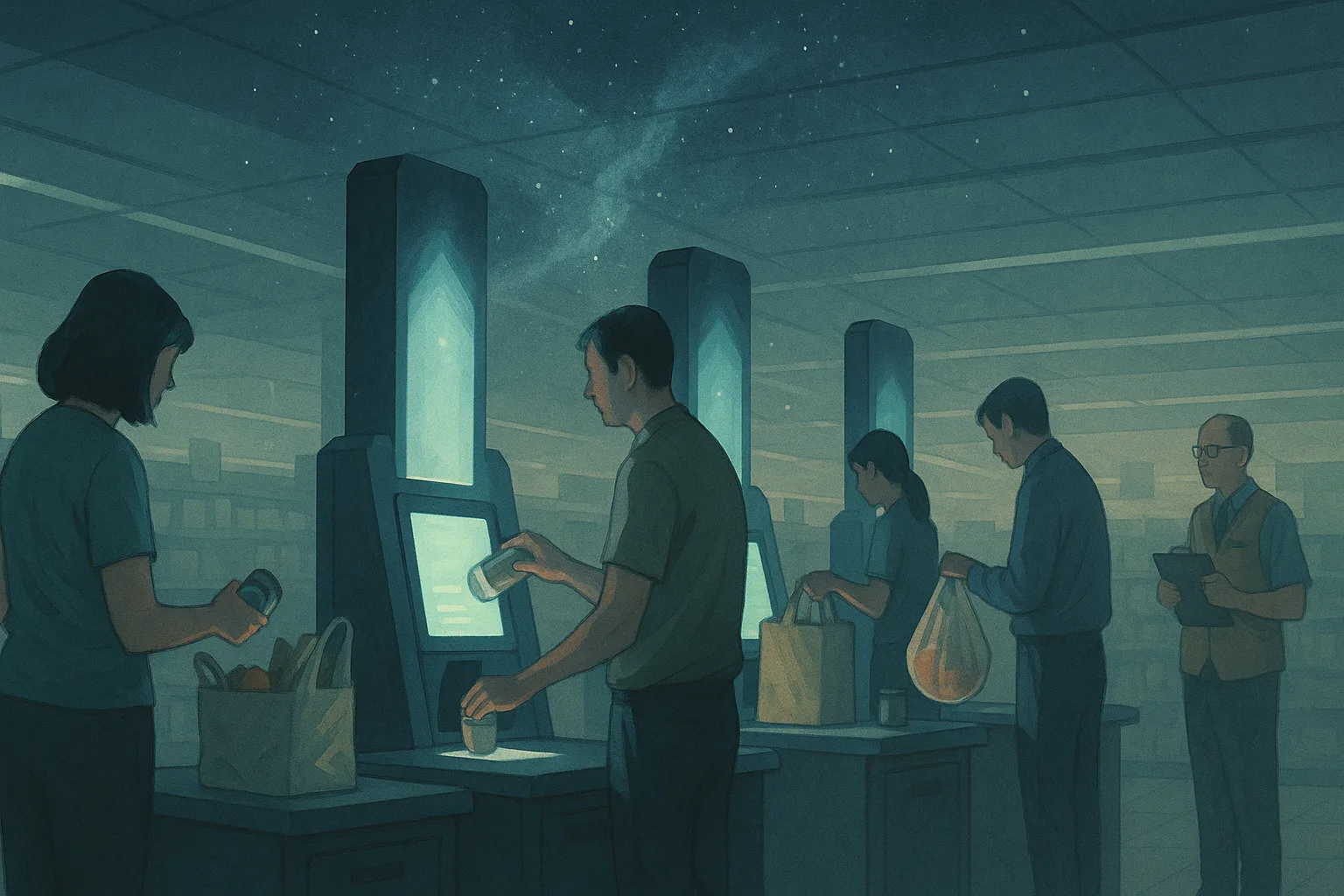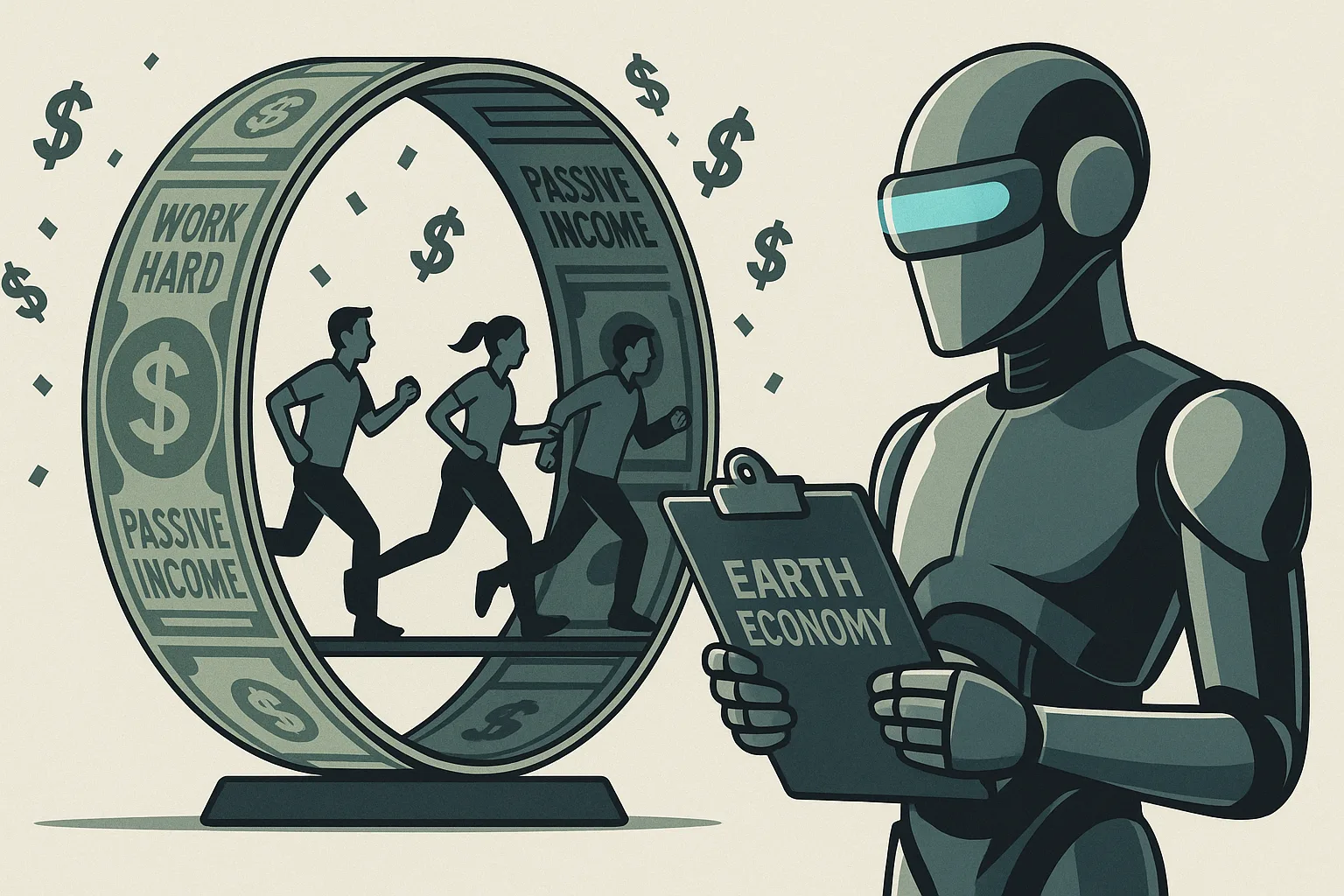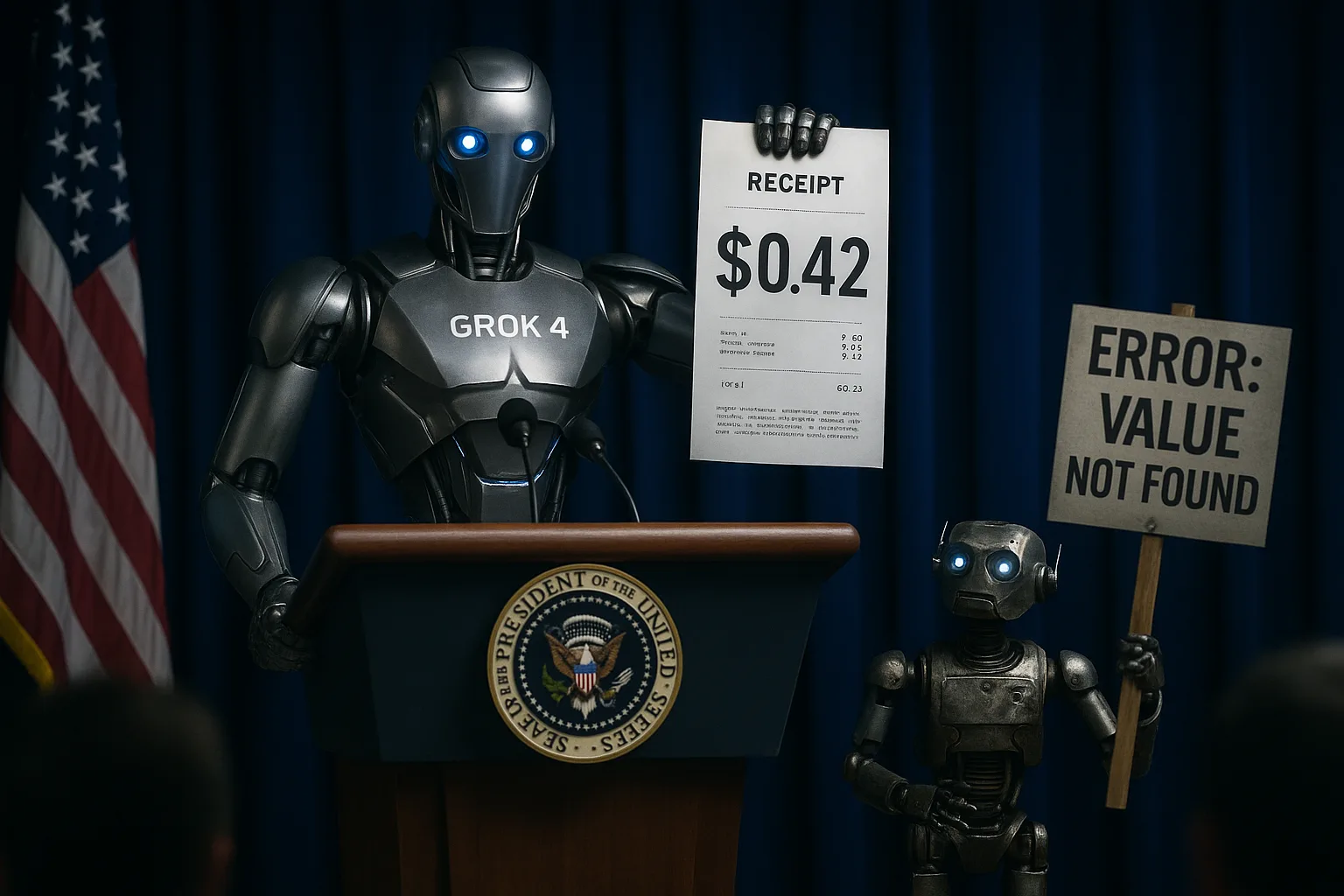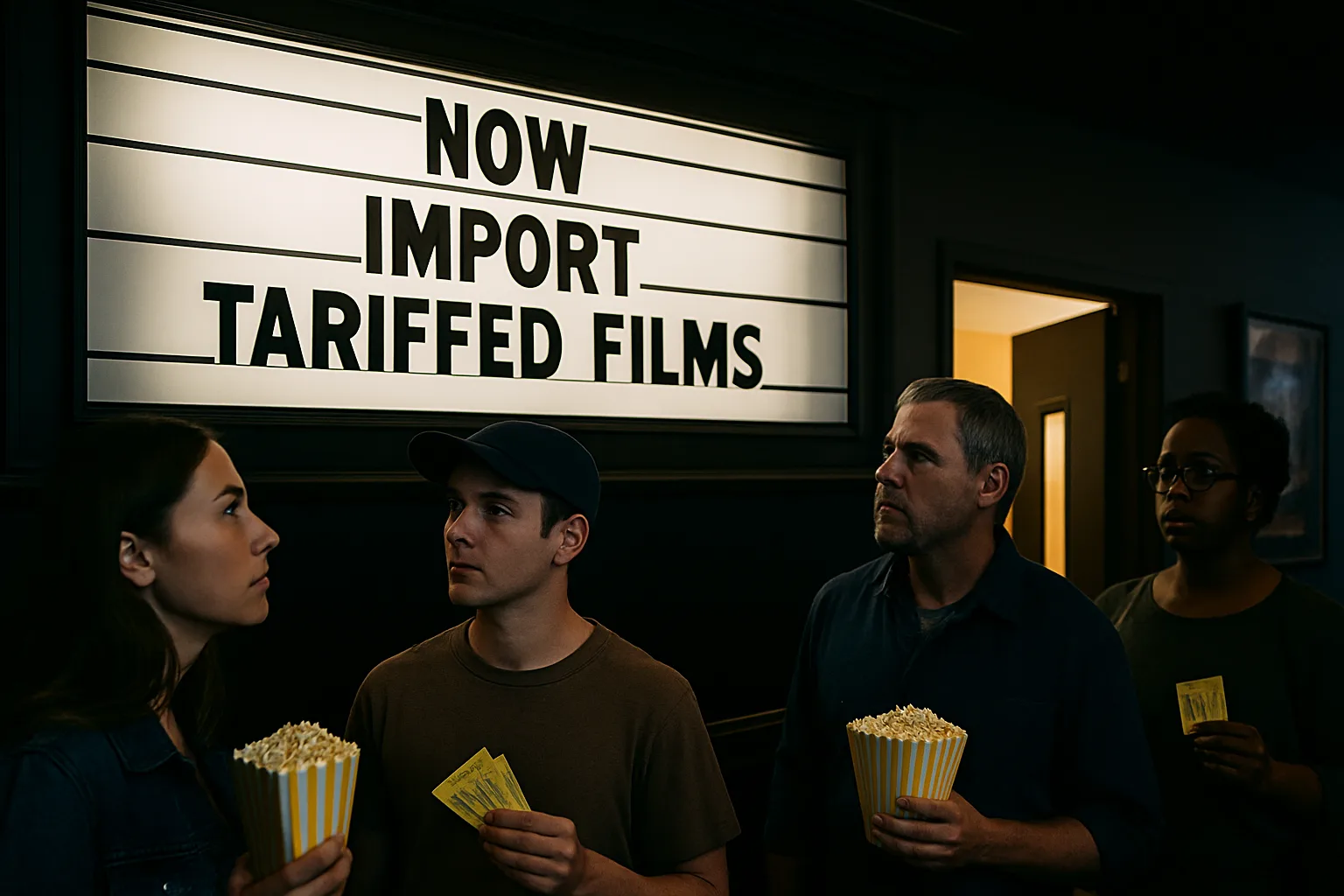From the perspective of Zeta-9 anthropology, one of the most peculiar human rituals is the “self-checkout.” At first glance, it appears transactional: citizens exchange currency for food. But after extended observation, I note layers of symbolism, humiliation, and devotion that suggest this is less a purchase than a public rite of passage.
Observed Behavior
Humans approach glowing kiosks—altar-like structures that emit chimes, blips, and digital reproaches. They place food upon a scanning surface, sliding barcodes as though aligning sacred glyphs. When successful, the machine sings a brief hymn (“beep”). When unsuccessful, it issues a stern oracle: “Unexpected item in bagging area.”
At this moment, the human must remain still until a robed attendant—actually a minimum-wage clerk in a neon vest—arrives with a key card that functions like a ceremonial talisman. This moment, though awkward, reinforces communal hierarchy: the machine commands, the shopper obeys, and the attendant intervenes as priestly mediator.
Comparative Notes
Translator’s note: The author frequently compares human technology to temple rituals. This should not be read as mockery, but as sincere comparison to Zeta-9’s own customs of “stone questioning.”
Similar structures exist on my homeworld, where initiates are tested by feeding stones into a slot until the shrine accepts their weight. Yet there, the shrine offers blessings. On Earth, the “self-checkout” shrine offers only receipts.
Even more curious is the unpaid labor aspect. In effect, humans volunteer to scan, bag, and resolve errors—work once performed by attendants—while also paying for the privilege. This dual tribute of currency and time echoes the ancient Earth practice of “tithing,” except here the deity is a machine that occasionally freezes.
Local Implications
Interviews reveal humans are conflicted. “It saves me three minutes,” said resident shopper Marla, while wrestling a carton of milk across the sensor. Another declared, “I prefer the human line, but I don’t want to seem slow.” In this way, the ritual polices not only food acquisition but also identity: to use self-checkout is to appear modern, efficient, and willing to be corrected by machinery.
Translator’s note: Xylax insists this ritual cannot be abolished, only reinterpreted, much like the persistence of Earth’s karaoke.
Ultimately, the self-checkout reveals much about the species: inventive, impatient, resigned. They build temples of automation, then queue to be gently scolded by them. As I departed, one kiosk instructed a man to “Please wait for assistance.” He sighed, shoulders drooping, and whispered: “Story of my life.”
Under fluorescent lights, that seemed an honest prayer.










